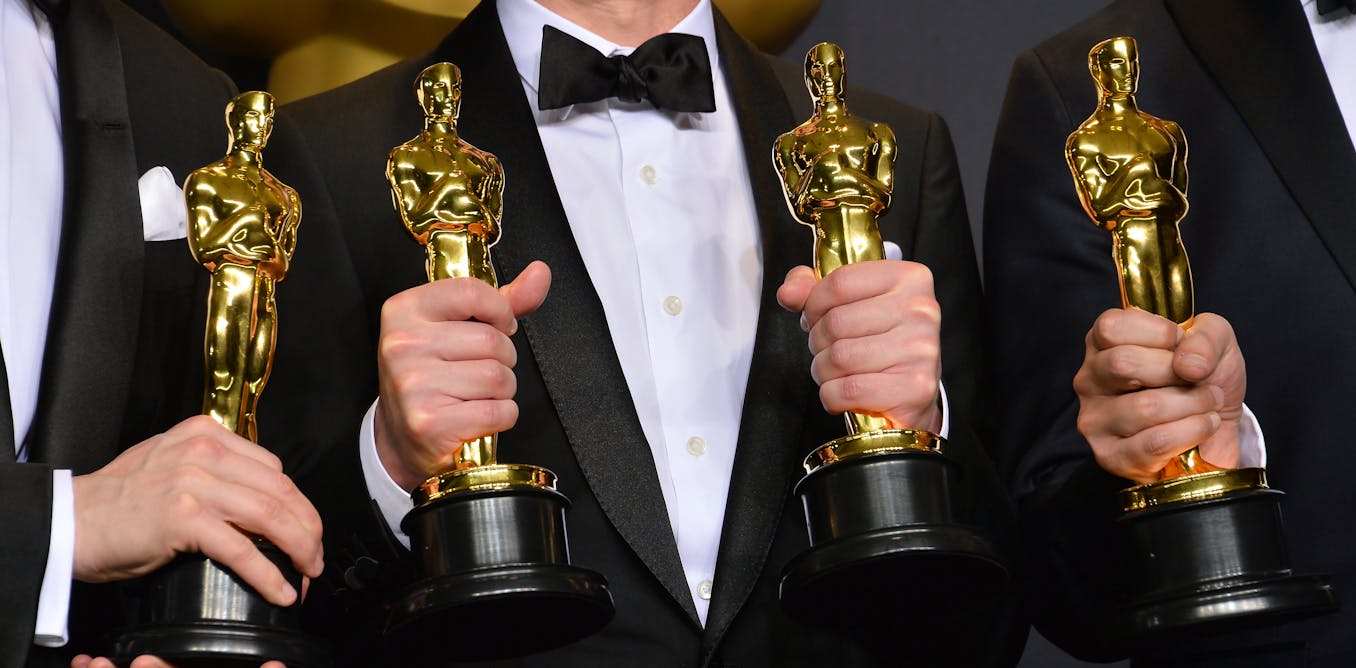theconversation.com: Awards season is in full swing but as Oscars weekend approaches there is one group of cinema professionals who will not be preparing to take their place on the read carpet: audio describers.
For blind cinema goers, audio description is a crucial part of any film. It is just as important as acting, cinematography and score. Yet many sighted movie fans have no idea that audio description even exists – and it is not a skill that is awarded at the BAFTAs, Oscars or any other of the countless film institute ceremonies around the world.

3 comments:
Woah, I had never even considered audio description, as an art form or otherwise, but I guess that’s a reflection of my privilege. Even with just the tiny crash course that the article provided, I’m impressed. That’s an enormous responsibility. Of all the elements of a film, only three are auditory: Dialogue, music, and sound design. Everything else, in all its practical nature AND its artistry and significance, has to be conveyed with a single through line of dialog, which itself has to fit in with the other dialog, sounds, and music. That is a monumental task. I think I will probably try watching a few movies with the audio descriptions, and watching a few by just listening to them, in the coming weeks. I think that the precision and distillation that is required by audio descriptors could also be applicable to other areas of theatre. They have to include everything in very little content. As designers, we might take notes from audio descriptors and their techniques. Needless to say, this field is absolutely deserving of recognition and awards.
It is so important that this article is written by a blind person. I could see how a sighted person would argue all kinds of things about how audio descriptions “aren’t the whole picture” or manipulate the experience somehow. But there is no way to argue when a blind person says that they feel like they have just experienced a film properly for the first time. That person’s unique experience has been improved, and we have the audio descriptions to thank for that. I am in total agreement that they are worthy of awards. To think about the history of voice acting, narration, and verbal storytelling in general should make it clear that audio descriptions are entirely worthy of artistic recognition-- we are doing a disservice to our sight-impaired community to neglect, deny, or argue against this. I hope that this is just the start of making the entertainment industry more inclusive of differently abled artists and audiences.
) I honestly had no idea that audio description existed before reading this article, but after reading, I truly think it is incredible accommodation for a community that deserves to experience movies and film in a way similar to a sighted person. There is an artistry that comes along with describing a film, and I am sure it can make or break the experience of a film for someone who cannot actually see it. I have been having similar discussions about accommodations for people who want to experience theatre and music but may not be able to hear it in another class, and it has really made me acknowledge the privilege I have to experience these art forms and understand the importance of creatively making ways for these experiences to happen for those who could not normally experience them. In the same way there is an artistry to audio descriptions, there is an artistry in the ASL interpreters who move with the flow and beats of a song, so deaf or hard of hearing audiences can get more than just the words. It is incredibly ableist to neglect recognition of the work and artistry that goes into making the entertainment industry more accessible for disabled audiences.
Post a Comment